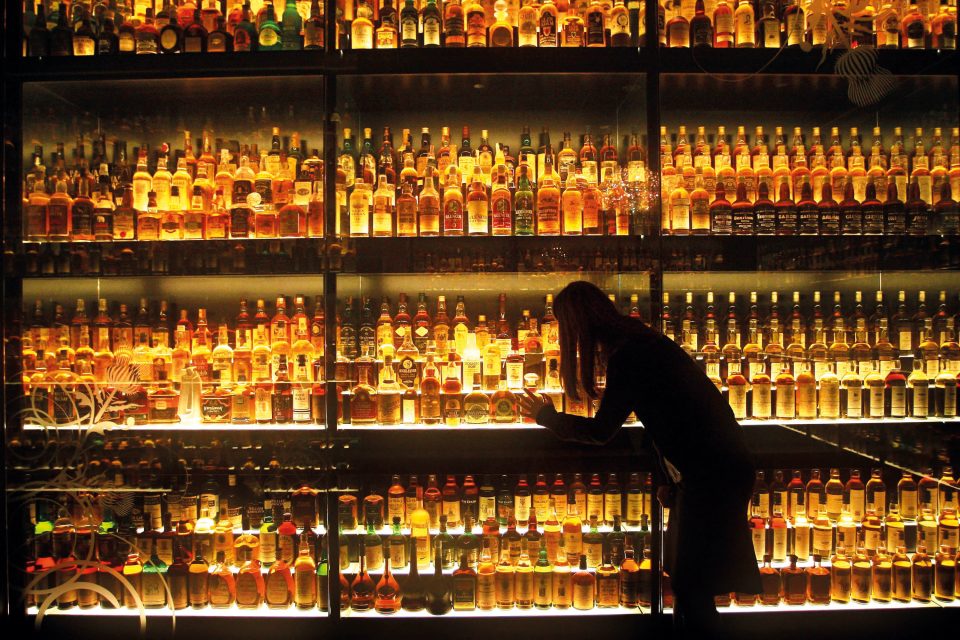Several regions in Indonesia have tightened the circulation of alcohol in their respective regions by issuing regional regulations that give greater authority to the security forces to crack down on the storage and production of liquor.
Two regions, namely Tangerang and Bogor, satellite cities of Jakarta, already have regional regulations (Perda) relating to the distribution of alcohol. In Bogor Regency, the regulation is listed in Perda no. 4/2015 concerning public order. “Article 17 letter E states that every person or entity is prohibited from storing, producing, and distributing alcoholic drinks without permission from the authorised official. So if there is a permit, it is okay,” said Budi Surono, a member of the Bogor District Public Order Agency (Satpol PP).
Budi said that his team has a mechanism in every action, such as asking for a permit letter from the seller and confirming it with the related agency. “We usually crack down on stalls. While clubs and discotheques usually have permission,” Budi said.
In Bogor City, regulations regarding the circulation of alcoholic drinks are listed in Mayor Regulation no. 74/2015. The regulation allows hotels, restaurants, and bars to sell alcoholic drinks. However, referring to the Mayor Regulation no. 70/2016, there are additional regulations including that alcohol buyers must be at least 21 years old and show an identity card when buying. Also, the distance of the location of the sale of alcohol may not be close to terminals, schools, sports facilities, hospitals, and parks.
In South Tangerang, the prohibition on the distribution and production of alcoholic drinks is regulated in Perda no. 4/2014 concerning the Implementation of Licensing and Registration of Industrial and Trade Businesses. “In article 122 of the Perda, it is clear that the circulation of alcohol in South Tangerang is prohibited,” said Head of Law Enforcement and Legislation Unit of South Tangerang Satpol PP, Oki Rudianto.
“South Tangerang does not issue industrial business licences, import business licences, distribution permits, and trading business permit (SIUP) for alcohol business and trade,” he said.
South Tangerang Satpol PP is quite intense in conducting surveillance and raids on places that store and sell alcoholic drinks, and one which received the public spotlight was the selling of liquor in a warehouse in the city last June. The warehouse stored various types of premium alcohol, which was distributed to a number of entertainment venues in Jakarta, Bogor, Depok, Tangerang, and Bekasi (Jabodetabek).
The Tangerang region, which includes South Tangerang, Tangerang Regency, and Tangerang City, is believed to be one of the areas that became the centre of production of illegal, homemade alcohol that has circulated in the Greater Jakarta area. The liquor, made from a mixture of hazardous ingredients such as insect repellent and cough medicine, has repeatedly killed many victims.
In April 2018, at least 91 people died because of drinking home-made liquor. The incidents were scattered in several regions including South Tangerang, Jakarta, and several cities in West Java. In April 2018, the same situation also happened to 31 people in Depok, Bekasi, and Jakarta. Alcohol is heavily taxed in Indonesia, making it too expensive for most people, which has prompted a black market for the unlicensed liquor.
Government regulates liquor through Minister of Trade Regulation no. 20/2014 concerning the control and supervision of the procurement, distribution, and sale of alcoholic beverages. Even though national-level regulations already exist, many local governments make and implement their own rules. A study by the Centre for Indonesian Policy Studies (CIPS) in 2018 revealed that there were more than 150 local regulations enacted to limit the distribution and consumption of alcohol.
Public policy observer Agus Pambagio said local government may make rules for their own regions but they should not conflict with regulations at higher levels. “The local regulations must be harmonised with the laws above them,” Agus said.
He said local government usually makes rules because it responds to the people’s aspirations. However, he is concerned that the many rules that are made also open up greater opportunities for fraud by government officials for their personal benefit. In addition, local regulations related to alcohol in the regions might cause fewer foreign tourists to want to pay a visit. “We are faced with choices, we want many tourists to come or not,” Agus stated.
Research by CIPS concludes that government regulations to control the distribution of alcoholic beverages by imposing high import and excise tax rates, as well as many regional regulations aimed at limiting alcohol distribution and consumption, are not effective at protecting consumers.
Two researchers from CIPS, Hizkia Respatiadi and Sugianto Tandra, in their research report entitled Combating Illegal Alcohol: Policy Priorities in Bandung, West Java (2018) argued that these regulations triggered the widespread circulation of unlicensed alcohol. “The black market of illegal alcohol will continue to exist if the government continues to close access and affordability of legal alcohol,” they wrote in their report.
During 2008-2013, there were about 230 victims killed from consuming unlicensed alcohol, and that more than doubled to 540 in 2014-2018.
To stop the circulation of unlicensed alcohol as well as to reduce the number of victims, Hizkia and Sugianto encouraged the central government to reduce the price of excise and import duties on legal alcohol. They also encouraged local governments to review alcohol bans in their respective regions. Instead of prohibiting consumption, policies should be focused on increasing education about the dangers of alcohol. Even if they choose to keep drinking, it must be ensured they get access to legal and safer alcoholic drinks.




